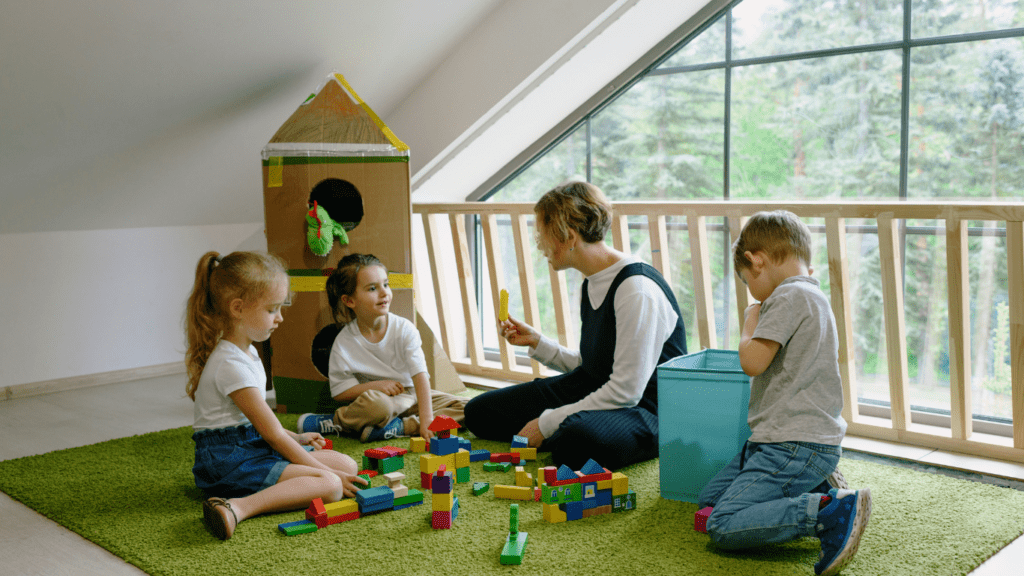Understanding the Impact of Gaming on Kids
Video games have become integral to many kids’ lives. Understanding their impact helps parents promote healthy habits.
Benefits of Gaming
Gaming offers several benefits. It often enhances cognitive skills. Many games require players to solve complex puzzles or make strategic decisions. This can improve problem-solving abilities.
Games like “Minecraft” foster creativity by allowing players to build virtual worlds. Multiplayer games promote teamwork and cooperation.
Titles like “Fortnite” and “Overwatch” require players to communicate and work together to achieve objectives. Some educational games help with language learning, math, and history.
For instance, “Duolingo” uses game-based learning to teach languages, making education engaging.
Potential Risks of Excessive Gaming
- Excessive gaming poses risks. Extended screen time can lead to physical health issues like obesity and poor posture.
- Staring at screens for long periods strains eyes, causing discomfort and potential vision problems.
- Social interactions may suffer as kids spend more time gaming and less time with peers.
- Neglecting face-to-face contact can impact social skill development.
- Academic performance might decline if gaming consumes time meant for homework and studying.
Additionally, some games possess addictive qualities, leading to compulsive behavior.
Parents should monitor gameplay and set limits to prevent negative impacts.
Setting the Ground Rules for Gaming
Creating structured gaming rules helps children balance their passion for games with other essential activities. Ground rules provide clarity and ensure healthy habits.
Establishing Time Limits
Set clear time limits for gaming to prevent excessive screen time. According to the American Academy of Pediatrics, children aged 6 and older should be limited to no more than 60 minutes of recreational screen time per day during school days.
Allocate this time in a way that doesn’t interfere with homework, chores, or physical activities. Use features like parental controls on consoles and devices to enforce these limits.
Including kids in this process will make it easier for them to adhere to the rules and understand their importance.
Selecting Appropriate Games
Choose games that are age-appropriate and have educational or developmental benefits. Refer to the Entertainment Software Rating Board (ESRB) ratings to identify suitable games for different age groups.
For younger kids, opt for games that promote creativity, problem-solving, and cooperative play. Examples include:
- Minecraft
- Animal Crossing
- New Horizons
Avoid games with excessive violence or inappropriate content to ensure a positive gaming experience. Engaging children in selecting games can help them feel invested in the choices and make it easier to stick to the established rules.
Encouraging Balance in Daily Activities

Maintaining balance in your child’s daily activities helps prevent the negative impacts of excessive gaming. Encourage a healthy mix of physical activity, school responsibilities, and family time.
Promoting Physical Activity
Physical activity is essential for overall well-being. I recommend setting specific times for exercise, like:
- biking
- playing sports
- simply walking
Organize active family outings on weekends to integrate fitness into routine. Encourage participation in team sports to aid physical health and social interaction. Monitor daily physical activity to ensure it meets recommended levels for their age.
Balancing Gaming with School and Family Time
Maintaining a balance between gaming, school, and family time promotes a well-rounded lifestyle. Limit gaming hours, especially on school days.
Prioritize homework and study periods to ensure academic responsibilities are met. Set up a family schedule that includes shared meals, game nights, and other activities to strengthen family bonds. Use parental controls to enforce time limits on gaming devices.
Using Gaming as a Teaching Tool
Integrating gaming into your child’s learning process can be an effective educational strategy. With careful selection and proper guidance, video games can boost learning outcomes and essential life skills.
Educational Games and Their Benefits
Educational games merge fun with learning. Such games cover topics from math to language arts, providing a dynamic learning experience.
For example, games like “Math Blaster” help improve mathematical skills through engaging tasks.
Children’s reading abilities enhance with narrative-driven games like “Reader Rabbit.” Research from the Joan Ganz Cooney Center at Sesame Workshop shows that 74% of teachers find digital games effective in improving students’ math skills.
Enhancing Problem-Solving Skills Through Games
Video games also stimulate cognitive development. Puzzle games like “Portal” and strategy games like “StarCraft” require critical thinking and planning, helping children develop problem-solving skills.
Game environments often present challenges that players must overcome, fostering adaptive thinking. Studies by the American Psychological Association indicate that playing video games boosts problem-solving skills, creativity, and cognitive flexibility.
Creating a Positive Gaming Environment at Home
A positive gaming environment provides a foundation for healthy gaming habits. Parents play a crucial role in shaping this environment.
Involving Parents in Gameplay
Active participation by parents creates a more balanced gaming experience. By gaming together, I stay informed about game content and ensure it aligns with family values.
I set joint gaming times, making gaming a family activity. Shared experiences not only increase bonding but also help me monitor and guide gaming behavior.
I’ll also discuss in-game events and challenges, offering advice and sharing insights. This involvement keeps open communication channels about gaming preferences and concerns.
Encouraging Positive Online Interactions
Positive online interactions are essential for a healthy gaming environment. I teach my kids about respectful communication and online etiquette.
We set guidelines for appropriate behavior, ensuring they understand the consequences of negative actions, like bullying or inappropriate language.
Together, we explore multiplayer games that emphasize teamwork and cooperation. I regularly review their gaming profiles and friend lists, making sure they’re interacting with others positively.
By promoting constructive interactions, I help my kids build a supportive online network.



